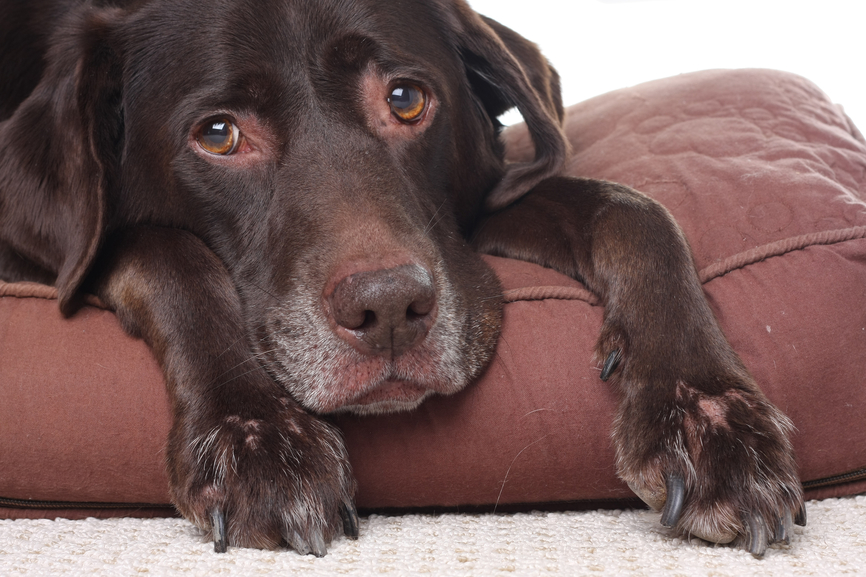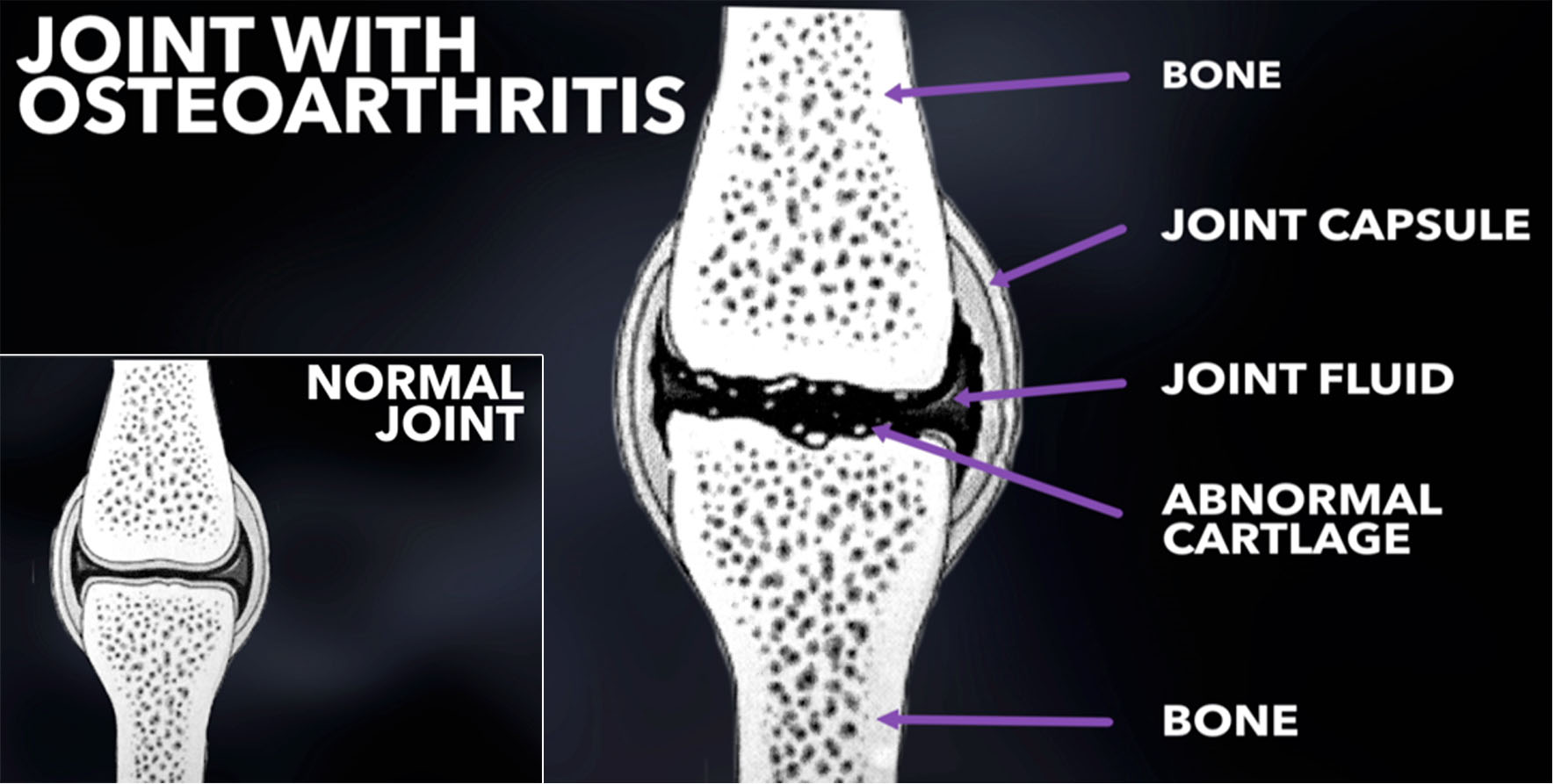What is arthritis?
The most common form of arthritis is osteoarthritis also called degenerative joint disease (DJD). It can affect any breed and is usually due to old age and general wear and tear on joints. However arthritis can also be seen in younger animals as result of trauma, surgery, infection, cancer or cartilage growth abnormalities. Arthritis affects up to 1 in 5 dogs in their lifetime. It also affects many cats.
You can see in this basic diagram that in a joint with arthritis there are several changes including more joint fluid between the 2 bones and a thickening of the joint capsule which may be seen as swelling. The cartilage on the end of the bone is irregular rather than smooth and may leave bone exposed which is painful.
Symptoms
The symptoms of arthritis are varied and initially often mild.
- often stiffness after rest especially after a particularly active day
- may progress to stiffness every day
- decline in mobility
- trouble toileting and grooming
- take longer or have difficulty getting up from their bed
- trouble getting into and out of the car
- limping or favouring one leg
- irritability or behavioural changes which you may not have attributed to painful joints
- reduced appetite
- loss of interest in games and chasing balls

Diagnosis
Arthritis cannot be reversed or cured. After a full clinical examination including palpation of joints a vet may diagnose arthritis via x-ray under sedation. However in the early stages of arthritis some animals display clinical signs before any changes can be seen on x-ray. X-rays give us some information on the location and severity of arthritic changes and also to try to rule out other causes of lameness such as bone tumours or cysts. They allow us to give some indication of prognosis for treatment.
Treatment
There are several ways in which we can manage arthritic pets.
- Weight management is the first and most important tool.
- Pain relief – we can substantially improve a dogs life by alleviating pain with medications such as NSAIDs or cortisone.
- Injectable chondroprotective agents which help improve the health of the joint and cartilage eg Cartrophen, Pentosan, Zydax
- Food supplements such as glucosamine, chondroitin, green lipped mussel, shark cartilage may also reduce the inflammation and pain in these joints. Some foods have these products added for ease.
- Swimming is a great form of exercise for animals with arthritis and may help them to lose weight.
- Manage lifestyle such as reducing jarring activity such as chasing balls and jumping but still encouraging regular, gentle exercise.
At Bayside Mobile Vet we recently posted a YouTube video on arthritis. Our patient Cooper displays some of the common symptoms of arthritis.


